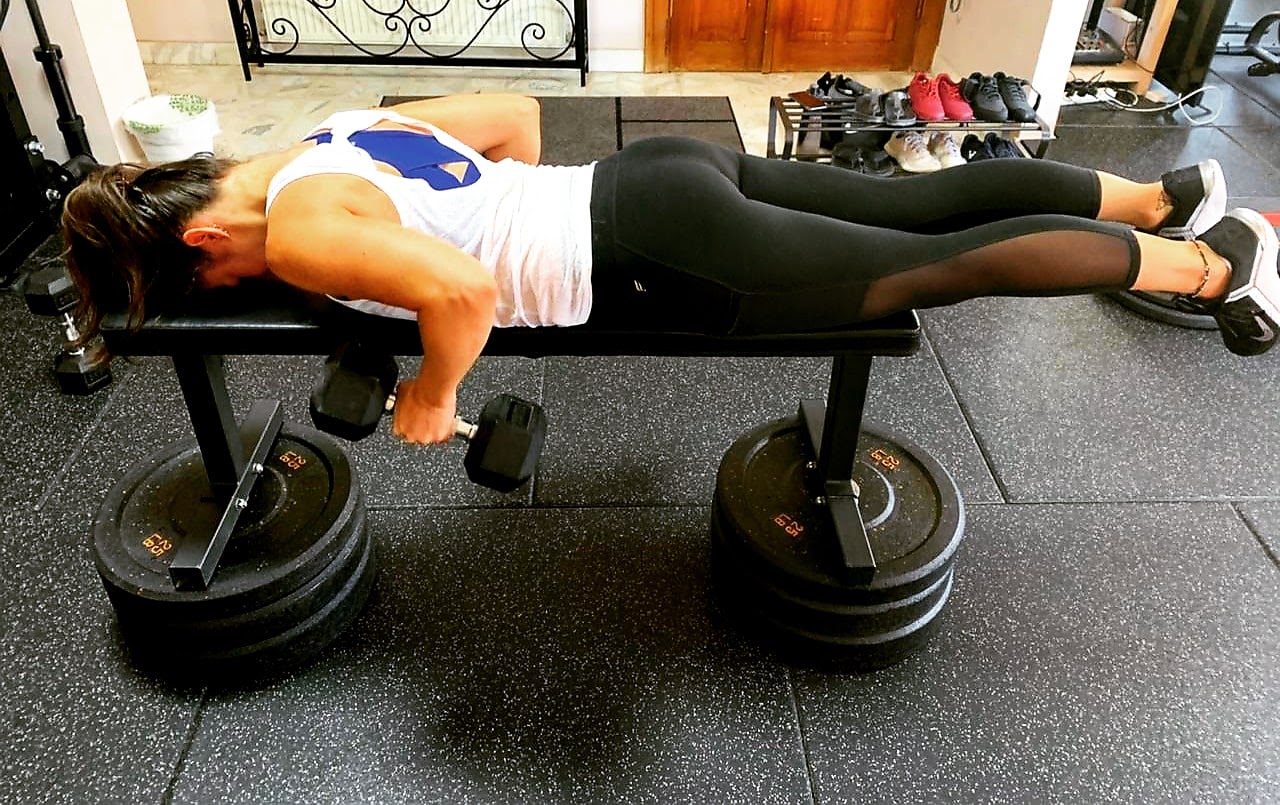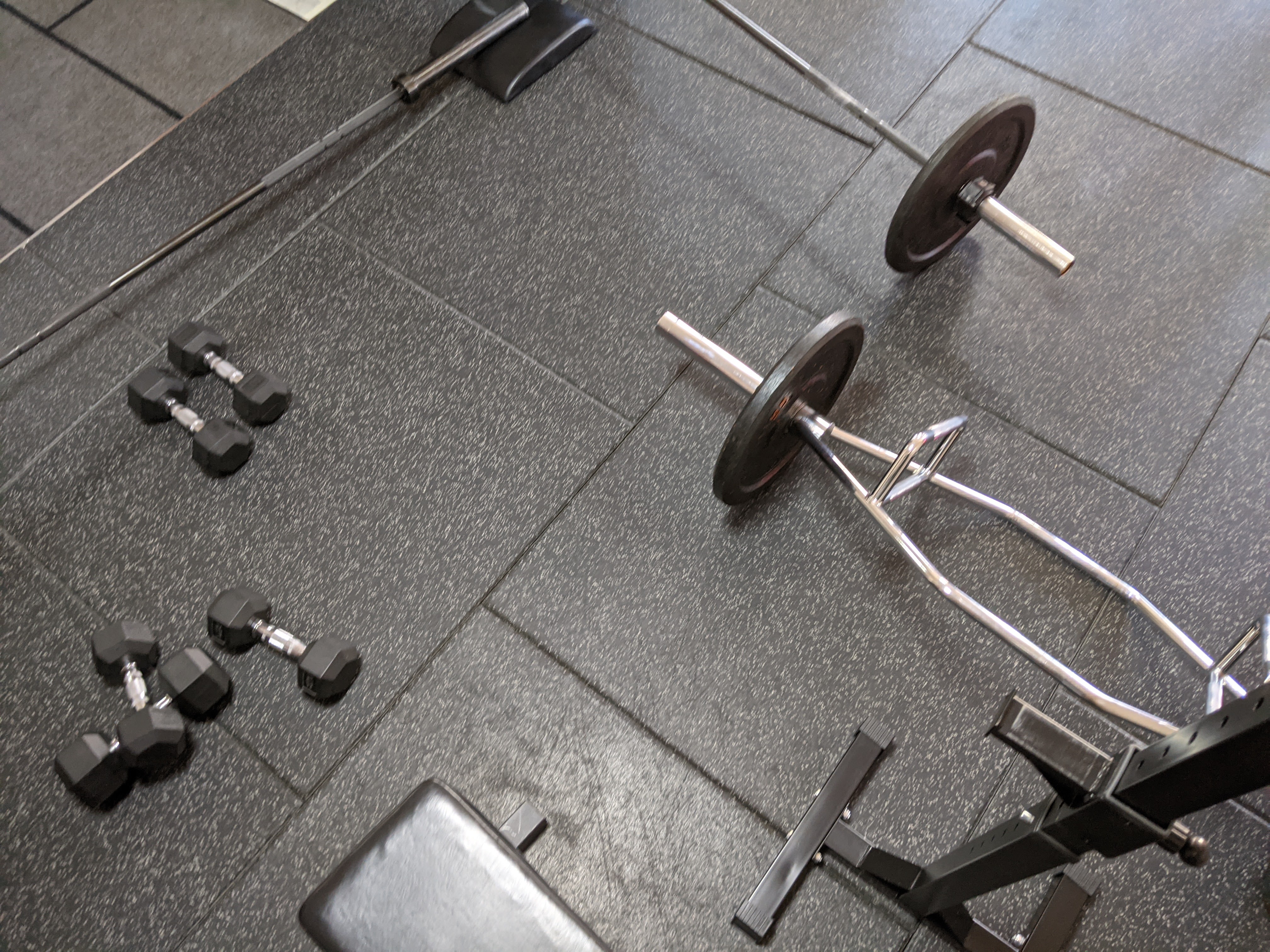I was an active kid, but no one would describe me as being particularly sporty. I was the kid who had to walk the mile during PE because my asthma made my lungs burn. I didn’t really get into fitness/movement until after college. It became a way to heal from my eating disorder, as I realized what I needed in my recovery was getting out of my mind and back into my body.
Running was my primary outlet for years. I eventually added light-weight resistance training to compliment my routine. But when my left psoas muscle (which runs from your lower back across the top of your thigh) starting acting up in 2018, I went to physical therapy and was advised to stop running. Immediately.
So I switched to lifting weights exclusively, and have never looked back. As I shared in a previous post, weightlifting has been a huge boost for my mental health and continued ED recovery.
However, along my journey, I’ve experienced some really negative – and surprisingly common – perceptions of women and lifting weights. Based on these experiences, here are six things I want to share with you.
1. No, lifting weights won’t automatically make you “huge”
Building muscle mass (size) verses muscle strength (ability) requires specific training methods and a lot of time. Meaning, you won’t suddenly become a bodybuilder overnight.
2. Lifting weights doesn’t make you “less feminine”
This fear that lifting weights will make women “bulky” stems from society’s expectations of what a feminine body should look like – i.e., thin and toned. This ideal seems rooted in the very gendered notion that fitness for women is all about weight loss and thus cardio is the best (or only) option.
Therefore, weights become associated with masculinity and “getting bigger”, and cardio with femininity and “getting smaller.”

3. Lifting weights is key to your physical health
There is a perception that women don’t need to lift weights, and if they do, they shouldn’t be too heavy. The reality is that strength-building and weight-bearing activities have many health benefits. They help to build bone health and maintain muscle power as we age – both of which are particularly important for women.
Many people fear injuring themselves while weightlifting. But building muscle strength is actually critical to reducing injury and preventing falls.
4. Weight training is also great for your brain and mental health
Weight training can help slow degeneration in areas of the brain associated with Alzheimer’s and dementia.
Weight training can also help reduce anxiety and improve symptoms of depression. For me, the structure of weight training calms my racing ADHD brain, and allows me to channel my energy into something productive.
5. Weight training can be part of eating disorder recovery
The gendered association of weightlifting with masculinity and competition (a common ED behavior) pops up in ED recovery spaces as well. When it comes to exercising during eating disorder recovery, experts tend to point women to yoga because it is non-competitive and focuses on mindfulness.
The focus on mindfulness is certainly important to ED recovery journeys. However, yoga has its own thinness problem, and can be just as competitive as any other competitive sport.
It is critical for those in ED recovery work with a medical professional to determine if and how different forms of exercise can help their recovery. But given its mental health benefits, weightlifting shouldn’t automatically be discounted as somehow “not normal” in these spaces.
In my own recovery journey, lifting weights helped me rebuild my mental strength. My eating disorder was a monster that made me feel powerless, and there’s nothing like lifting heavy s**t to remind you of just how powerful you are.
6. Weights ARE for you and you can start at any time
In addition to gender stereotypes, other things that can keep women from lifting are:

“Gymtimidation”
Gym intimidation/harassment is very real, and can make women and more marginalized groups feel particularly unwelcome in active spaces, especially weight rooms. (This can happen in women-only gyms as well, so always check out a gym’s vibe before becoming a member regardless).
Lack of encouragement/teaching
Women aren’t really socialized to choose weights as an exercise in the ways men are. This can lead to feeling like we don’t know the “right” things to do in a weight room situation.
It is important to remember no one is born lifting weights. EVERYONE has to learn and start somewhere.
“I’m not [fill in the blank] enough”
You don’t need to be a certain age or body type or already in a certain shape to start weight lifting. Lifting weights is for literally everyone.
Also, lifting weights isn’t all or nothing. There’s no need to jump straight into powerlifting to reap the benefits of strength training. There is a wide middle ground – the important thing is that you start.
Keep going
I know that telling you to not listen to what people say and lift weights anyway won’t change any past experiences you’ve had. But gendered stereotypes and assumptions about weightlifting ultimately harm women’s physical and mental health. And it’s something we need to keep talking about.
While speaking to a coach or trainer is important, start by talking to your doctor about what weight training could look like given your needs. Then ask a friend or family member you trust to be your buddy, even if it’s just virtual support. This episode of NPR’s Life Kit also has some good tips and suggests some simple exercises to build your own routine.
For what it’s worth, I believe in you. And I am always down to be your cheerleader if you need one.



